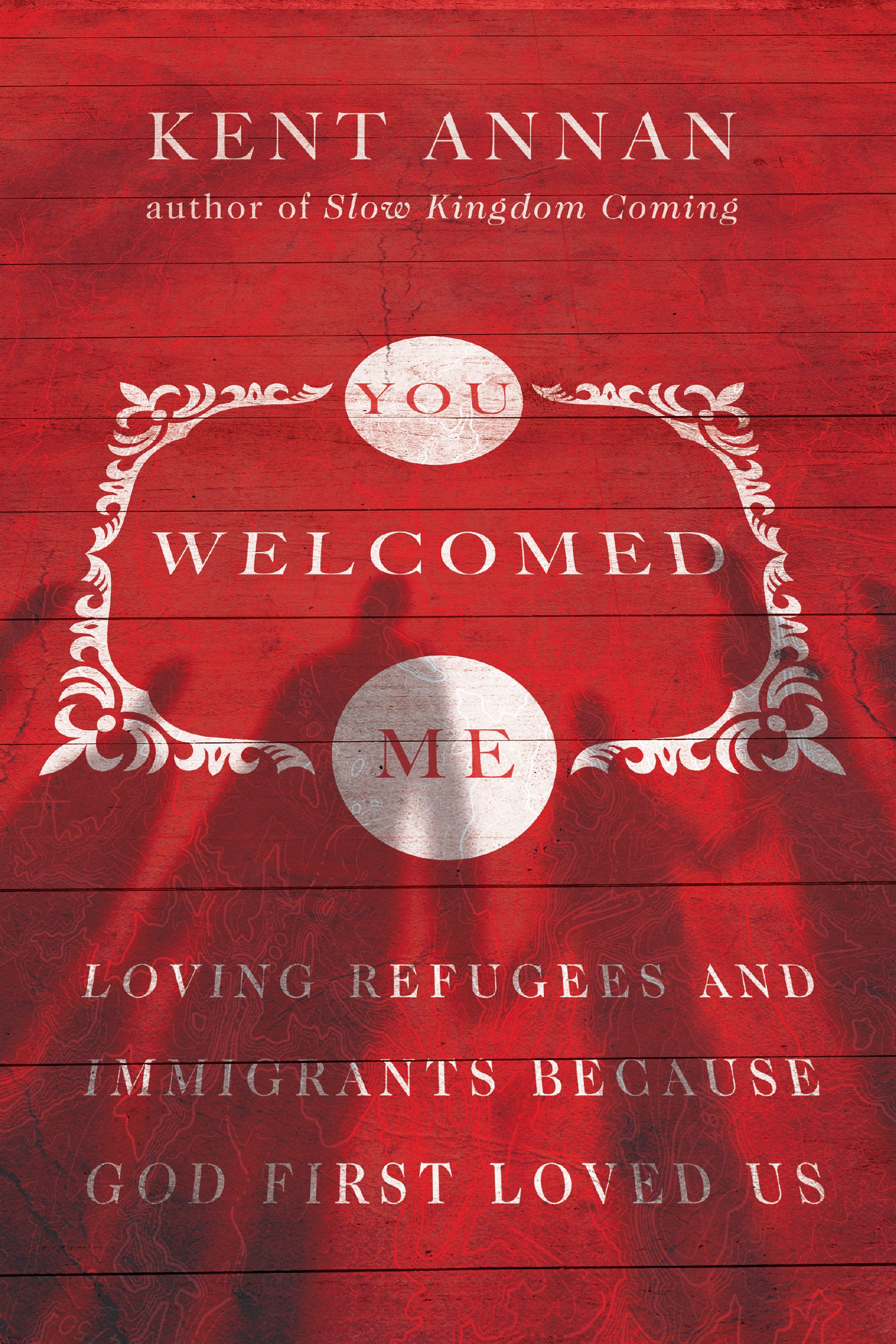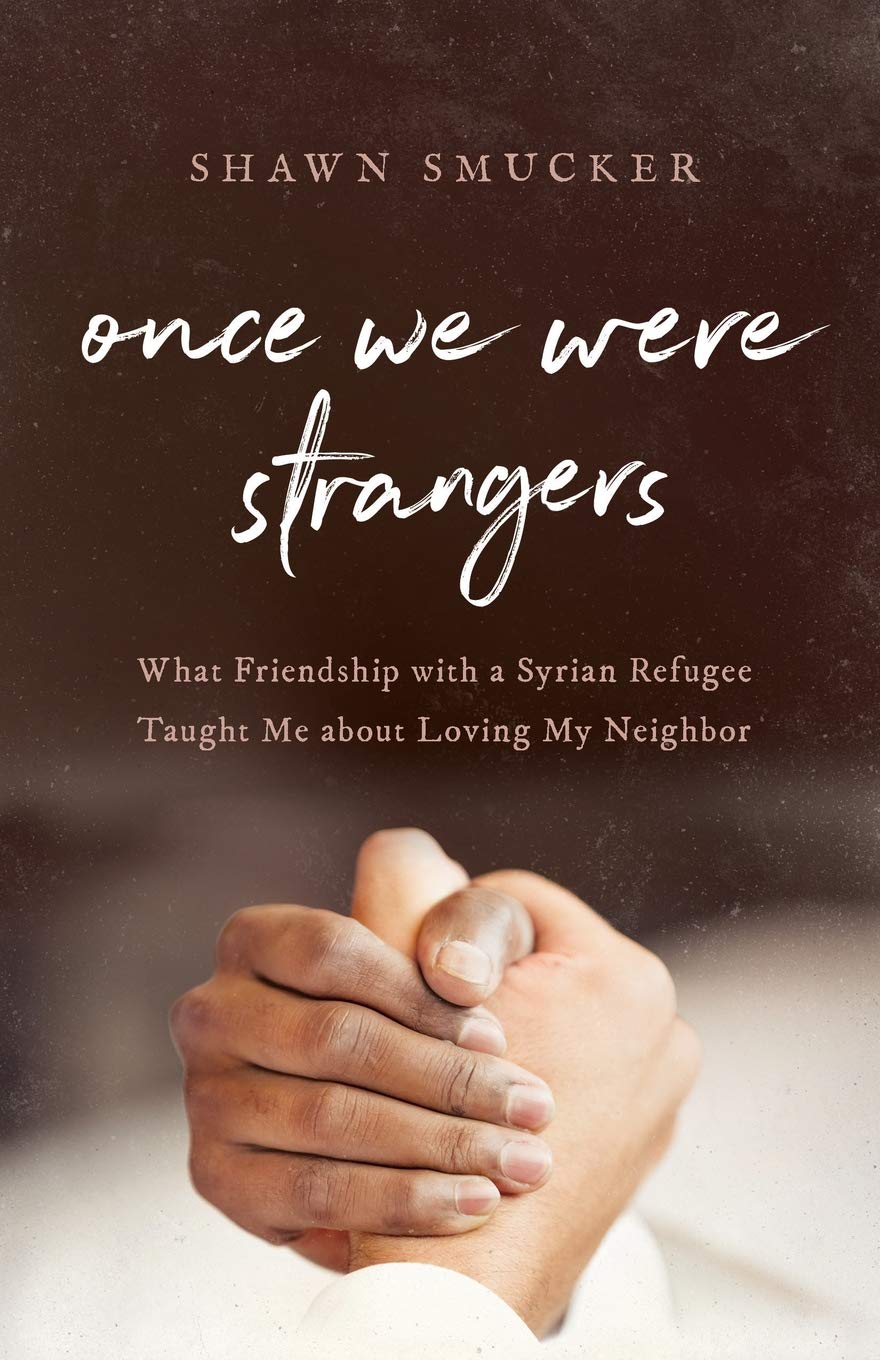I recently spoke at a church in the Midwest. My exhortation included a reminder of God’s image in our refugee neighbors, including those families caravanning out of violent communities south of our border. When we see strangers through the eyes of Scripture, our obligation differs from what the pundits and politicians preach on cable news. We find ourselves at the Nile’s edge, like Pharaoh’s daughter, poised to receive the Hebrew baby from the other side of the river. We see a person under threat of a death edict and respond with welcome.
In the lobby after the service, several people rushed over to thank me for speaking directly about refugees and immigrants. “I’ve been waiting for someone from the pulpit to say something,” one woman said as she pressed her hand in mine. I expected to be chided for talking about a controversial topic or accused of wading into politics. However, to my delight, congregants were glad to hear a word from our holy book about modern sojourners and our role.
What became clear that Sunday morning was that we not only need but also want to have better conversations about immigrants. We want to hear the clear instruction of Scripture regarding refugees. We want the opportunity to wrestle together about how to welcome strangers, even as we remain vigilant about possible dangers. Often we look to our pastors and other church leaders to host these discussions. So where do church leaders begin?
Diminishing the Distance
Kent Annan, director of humanitarian and disaster leadership at Wheaton College and cofounder of Haiti Partners, offers a place to start our education in You Welcomed Me: Loving Refugees and Immigrants Because God First Loved Us. As a veteran of international development work with experience in refugee projects in France, Kosovo, and Jordan, Annan offers expert guidance on both the theology and practice of refugee response. With a depth of knowledge and great gentleness, he invites fellow Christians into the necessary exploration about whom we welcome and why.

His initial chapter poses a foundational question with regard to refugees and immigrants: Are we for or against them? Annan posits that how we answer “reveals a lot about what kind of family, community, and country we want to be.” He goes on to say, “After the answer comes the work to understand the nuances and navigate the complexity.” This is what I deeply admire about his work: He does not ignore the complicated nature of these conversations. Annan walks us through the thick tangle of biblical imperatives and practical questions.
He addresses real concerns about immigration and hospitality: Will incoming people take our jobs? Will the influx of immigrants open us to security risks? Will they change our neighborhood in unfavorable ways? Will the presence of these strangers compromise our ability to care for our own? Annan compassionately answers these questions by using the most recent data on demographics, crime, and economics, as well as harnessing his experience with refugees and the organizations that serve them.
But the challenges related to welcoming immigrants and refugees are not only external matters. The possibility of lost jobs or increased crime stirs internal fears we carry. Sometimes opening our door to those unlike us forces us to confront our own latent xenophobia. When we’ve lived with the privilege of stability—never fleeing our country due to violence, never traveling across borders in search of work, never needing refuge elsewhere—it is easy to lack empathy. This is why we are invited into the internal work of welcoming the other, which includes self-examination, confession, and lament. You Welcomed Me moves us through well-reasoned arguments toward spiritual formation so that we can be the compassionate people of Christ who are equipped, inside and out, to welcome the stranger.
One practical encouragement Annan offers is to increase our proximity to immigrants. Proximity disarms so much of our fear, allowing what was foreign to become familiar. A perfect example comes in the form of Once We Were Strangers: What Friendship with a Syrian Refugee Taught Me about Loving My Neighbor, by Shawn Smucker. In this memoir, an American writer living in Pennsylvania meets a refugee from the southern Syrian town of Umm Walad—and not by accident. As a writer with a desire to help the refugee community, Smucker reached out to a local chapter of the organization Church World Service. He asked to be connected with a Syrian refugee who would be willing to let him write about that person’s story. The first meeting Smucker had with Mohammad started with an intentional introduction. This was the initial step toward diminishing the distance between him and the reality of the refugee experience. What good fortune that Mohammad reciprocated.

A friendship unfolded between these two family men. It was awkward at first as they navigated language barriers and cultural challenges. In the book, we get a glimpse at Mohammad’s journey from Syria to a refugee camp in Jordan and, eventually, his resettlement in America. But what shines brighter is Mohammad’s confidence as a friend. He knows how to cultivate connection, and Smucker benefits immensely from his friendship. Different homelands, faith traditions, and cultures aren’t insurmountable impediments to those willing to befriend refugees. The story of these two men demonstrates that connection is possible and proximity is transformative.
As the book comes to a close, Smucker confesses that the book he wrote was very different from the one he originally imagined. He thought he’d write about a swashbuckling journey from Syria to America, filled with action and peril. But instead he told of a friendship, one where his own stereotypes were dismantled and he ended up with something better than a great story—he found a good friend.
This often happens when we collapse the distance between us and them. We find true connection with another person beyond the mischaracterizations and fears. We also discover an opportunity to be changed. We can disarm fear, cultivate compassion, grow in self-awareness, and recognize God’s image in the stranger. As this happens, we see refugees as people who are able to help us, not those who only need us. We experience the family of God as larger, more diverse, and beautiful beyond our previous imagination.
One year in the life of Smucker and Mohammad introduces readers to what is possible when we open ourselves to friendship with others unlike us. Smucker leaves readers with certain questions: Will these friends realize their dream and become neighbors? What will happen in the next five years? (For one source of insight on possible trajectories, we have D. L. Mayfield’s book Assimilate or Go Home: Notes from a Failed Missionary on Rediscovering Faith, which shares stories borne of long-term friendships with her refugee neighbors.)
As Annan writes, “An important way we give love more purchase than hate is by choosing who we’re near so that their stories are shaping us.” This is the heartbeat of both books—get close, and let love grow between us and refugees, immigrants, and other sojourners.
The Signature of the Spirit
For leaders who want to facilitate a comprehensive conversation in their church about the risks and rewards of welcoming the stranger, Annan’s book provides a strong place to start. His content is theological, practical, and well-suited for guiding a community through the complex issues around welcome. He writes with spiritual formation and action in mind, making this a perfect resource for a community ready to engage in better conversations about immigration, refugee resettlement, and Christian hospitality.
But sometimes we need a picture first, a story to crack open our imaginations. Smucker gives the church such a story, wonderfully written with humility and heart. This book could function as a modern parable for those with ears to hear.
The most compelling part of each book was when the voice of the refugee and immigrant pierced through the text. Words about refugees are necessary to help us understand. But the words of refugees themselves carry the signature of the Spirit, quickening our hearts. It made me hunger for future books written by resettled refugees and immigrants ready to tell the truth in their own way.
For now, the church is blessed to receive the gift of both these works penned with the gentleness of a father and the kindness of a friend. Into the vitriol of the current conversations crowding the airwaves, these books arrive as a salve to our souls. They are a blessed antidote, a needed invitation to engage in conversation from a place of love and not fear. I recommend them to the church and her leaders, confident that once we read we will be more equipped to shape better conversations that honor and include the strangers among us.
Kelley Nikondeha is codirector of Communities of Hope, a community development organization in Burundi. She is the author of Adopted: The Sacrament of Belonging in a Fractured World (Eerdmans).












